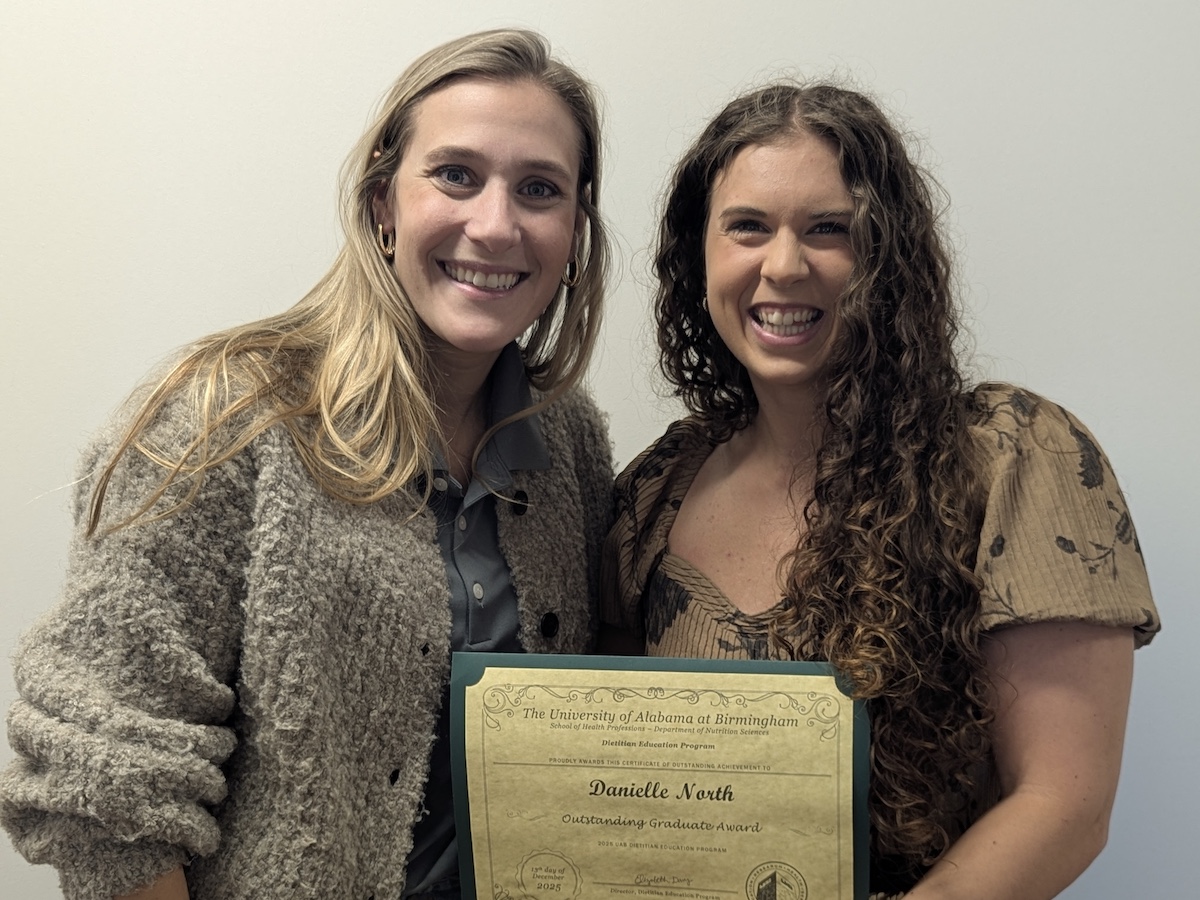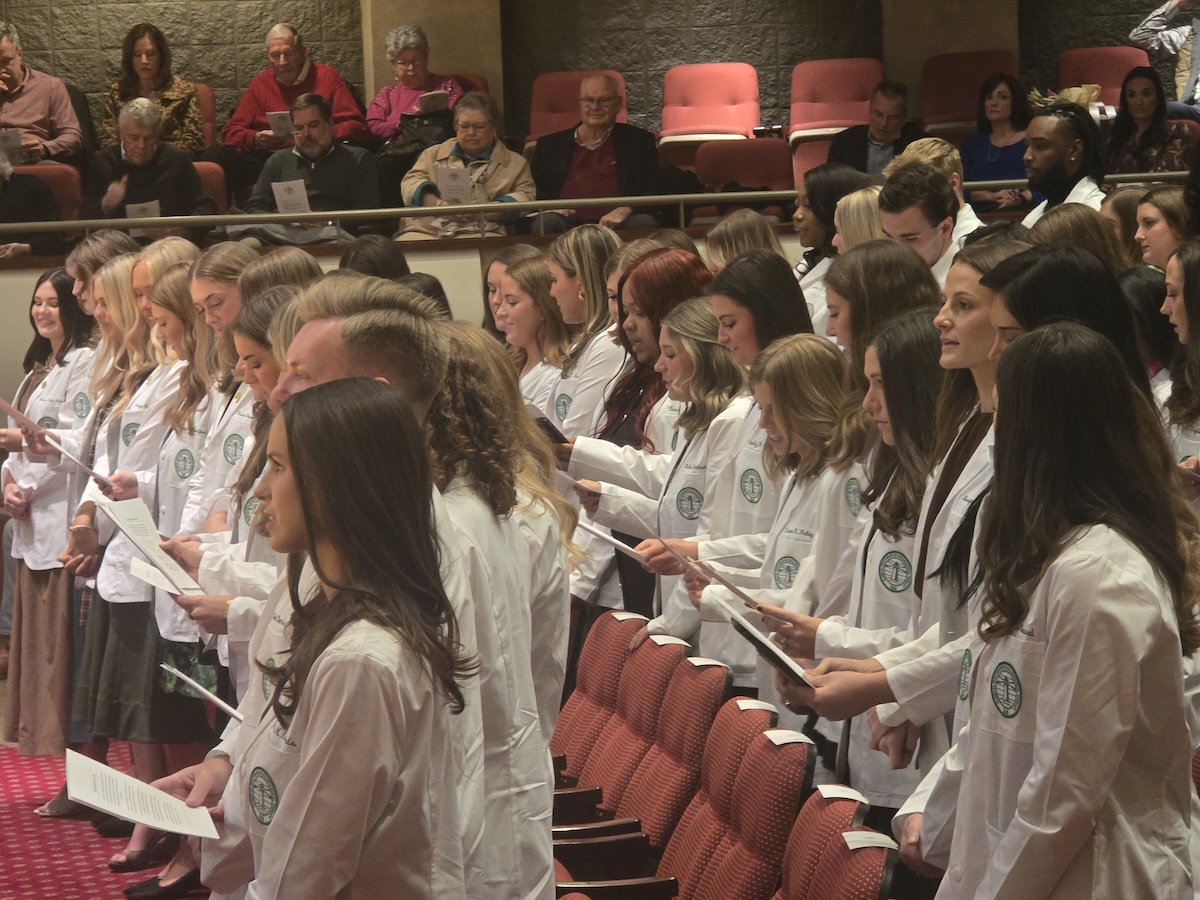In honor of Women's History Month, the School of Health Professions is celebrating the creative, passionate, and driven minds who are blazing the trail for women in their field. From researchers to educators to leaders — these women have inspired so many within SHP, UAB, and beyond.
We asked a few of the many outstanding faculty within our school to talk about their work, in their own words, through the lenses of their identities and experiences. Read their answers below.
Emily Caffrey, Ph.D., CHP, assistant professor in the Department of Clinical and Diagnostic Services, serves as the director of the M.S. in Health Physics program. She received her B.S., M.S., and Ph.D., from Oregon State University with the latter two focused on radiation health physics. She is the 2020 recipient of the Elda E. Anderson Award and the youngest member of the Health Physics Society to receive the honor. Caffrey recently completed her certification in health physics making her one of five in Alabama, and the only female to hold the title. 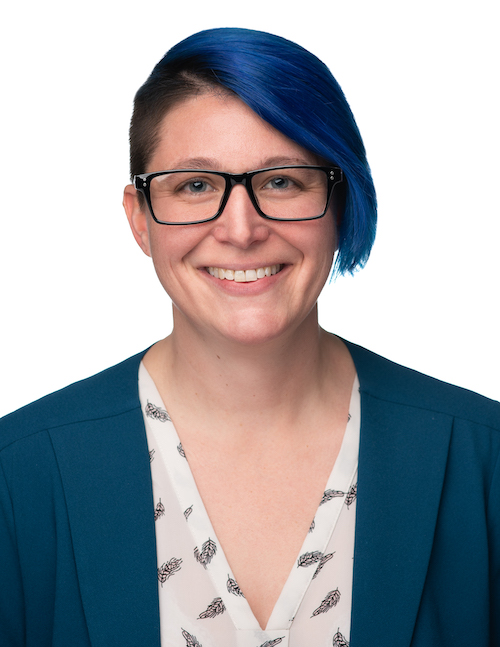 Emily Caffrey, Ph.D., CHP
Emily Caffrey, Ph.D., CHP
Q: Your contribution to the health physics field has been monumental. How did your journey to UAB start?
In 2016, the UAB program was brand new. I came to UAB right out of my Ph.D. and was responsible for developing and teaching all core health physics classes. I also mentored the first students to go through the program. In 2020, I was asked to serve as program director. Now I oversee the program's entirety, including mentoring all students, recruiting new students, developing new classes, expanding supervised practice sites, applying for grants, building a research program, securing program accreditation, etc.
I think most people would tell you that health physics chose them, not the other way around. I fell into the field by accident, but I love it. It's weird and interesting, and never a day goes by that I am bored! It's also incredibly important to the nation as a whole — if we want to continue exploiting the beneficial uses of radiation, we need people that can keep us safe as well.
Q: What inspires your work?
I love health physics. It's such a unique field with great people in it — my colleagues inspire me to continue pushing for excellence. I'm also just stubborn - I don't want to see Health Physics programs continue to close (HP programs are closing all across the nation, leading to a shortage in the workforce). My goal is to ensure the longevity of the field.
Q: Who is one woman that has inspired you and why?
Easy — my mentor and Ph.D. advisor, Dr. Kathy Higley, CHP. She was the program director at Oregon State (my alma mater), and she is a force to be reckoned with. She can clearly see issues at their root, and she doesn't shy away from a challenge. She never let the fact that she was a woman direct her decisions or her chosen path — she saw what she wanted and went for it.
Q: How have you overcome adversity/the biggest barrier you've faced as a woman in your profession?
I have this postcard in my office that says, "If they don't give you a seat at the table, bring a folding chair." This is basically my mantra. I know what I want to achieve, and I won't stop until I've reached that goal. I don't let failures, setbacks, or perceived biases stop me from pushing the envelope.
Q: What advice would you give the next generation of women in your field?
To set your sights high and never look back. You can achieve whatever you put your mind to. Success is about grit, perseverance, and determination, not sheer intelligence.
Sarah dos Anjos, Ph.D., OT, assistant professor in the Department of Occupational Therapy, has served as an OT for sixteen years. She currently teaches in all of the programs offered by the department, including the Ph.D. in Rehabilitation Sciences. Her area of expertise includes physical rehabilitation, focusing on neurological and cognitive rehabilitation. Anjos is the Career Development Networking Group liaison of the American Congress of Rehabilitation Medicine Stroke Interdisciplinary Special Interest Group. She is charged with finding mentors and mentees for various post-doctoral positions across the U.S.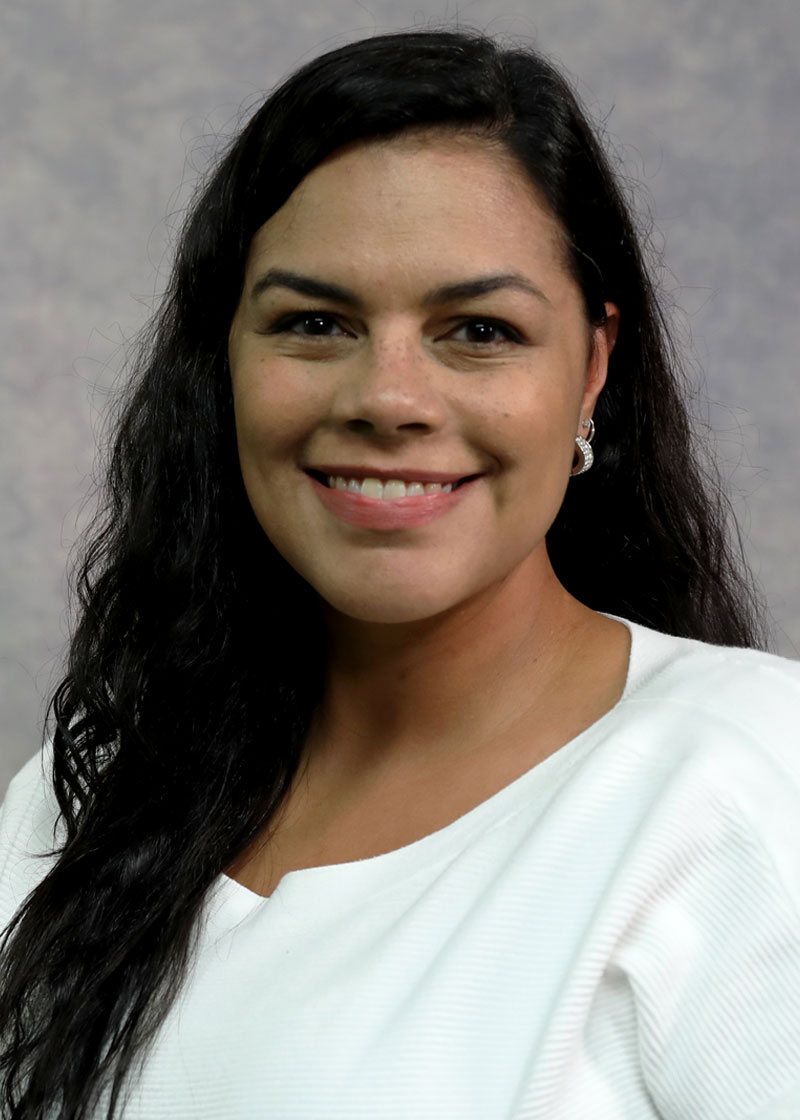 Sarah dos Anjos, PhD, OT
Sarah dos Anjos, PhD, OT
She is a passionate supporter of diversity, equity, and inclusion (DEI) and an SHP DEI Committee member. Along with her colleague, Carmen Capo-Lugo, Ph.D., PT, Department of Physical Therapy, she started a group of OT and PT faculty members "DEI Practical Conversations" to discuss challenges and develop potential solutions to promote an equitable and inclusive recruitment process, curriculum, and safe environment for SHP students, faculty, and staff.
Q: What does service mean to you?
We all should embrace and support DEI initiatives on campus and in the community. We usually think that DEI is a topic for discussion, but the most important part is applying what we learn in the way we interact with people and understand the world. It is a constant cycle of self-assessment to understand what we need to change and to modify beliefs and patterns of thinking that can potentially marginalize others. It is not only about me, my friend, and my co-worker; it is about building community, supporting one another, and societal change.
Q: Who is one woman that inspires you and why?
I have met many great women in my life, and now I can only think of Mrs. Dionila from my hometown in Brazil. No, she is not a famous person, but I have known her since I was a child. She is one of the bravest, smartest, and funniest women I know. She did not have the opportunity to finish middle school, and she is such a hard worker. She held three jobs while raising three kids on her own, and she gave them the opportunities she did not have. She is in her 70s now and retired a couple of years ago. She overcame many barriers to raise her kids; she went against all the odds. She is just amazing. She told me multiple times to seize every opportunity I have in life, so I would not have any regrets. I still follow this principle.
Q: How have you overcome adversity/the biggest barrier you've faced as a woman in your profession?
I am an occupational therapist, and most of us identify ourselves as women. I do not recollect any specific experiences in my clinical practice. Science, however, is different. Since most of my career as a scientist was here in the US, the barriers that I have encountered so far are the results of multiple factors: I am a woman of color, Latina, and English is my second language. I have been ignored in discussions; I have seen people checking what I have said because they did not trust my opinion. People think I am less intelligent or competent because of my accent and vocabulary. Another barrier is related to the stereotype of Brazilian women. People have asked me very inappropriate questions and have disrespectful assumptions about my culture, even though they have never been in my country. Initially, I was shocked and paralyzed, and I did not say much. Now, I am trying to educate people to ask them to explain where these assumptions come from. I think it is a battle that I am still learning how to fight.
Q: What advice would you give to the next generation of women in your field?
You do not need to go through life on your own; it is okay to be vulnerable. Look for collaboration and support and be the support for others, build community. Most importantly, nobody has everything figured out, and it is okay if you don`t either.
Sarah Tucker, Ph.D., OTR/L, an assistant professor in the Department of Occupational Therapy, comes from a long line of OTs. Inspired by her grandmother, an OT herself, Tucker found her passion for the profession at only 12 years old. Tucker received her master’s in Occupational Therapy from Ithaca College in 2000 and completed her doctorate in physical education and fitness from UAB in 2019. She currently serves as director for the post-professional clinical doctorate program. She has worked with various clients in the pediatric setting, including the Neonatal Intensive Care Unit (NICU). Tucker is a certified infant and child massage instructor. Before joining the UAB OT, Tucker served as the program director for the OT Assistant program at Brown Mackie College in Birmingham, Alabama.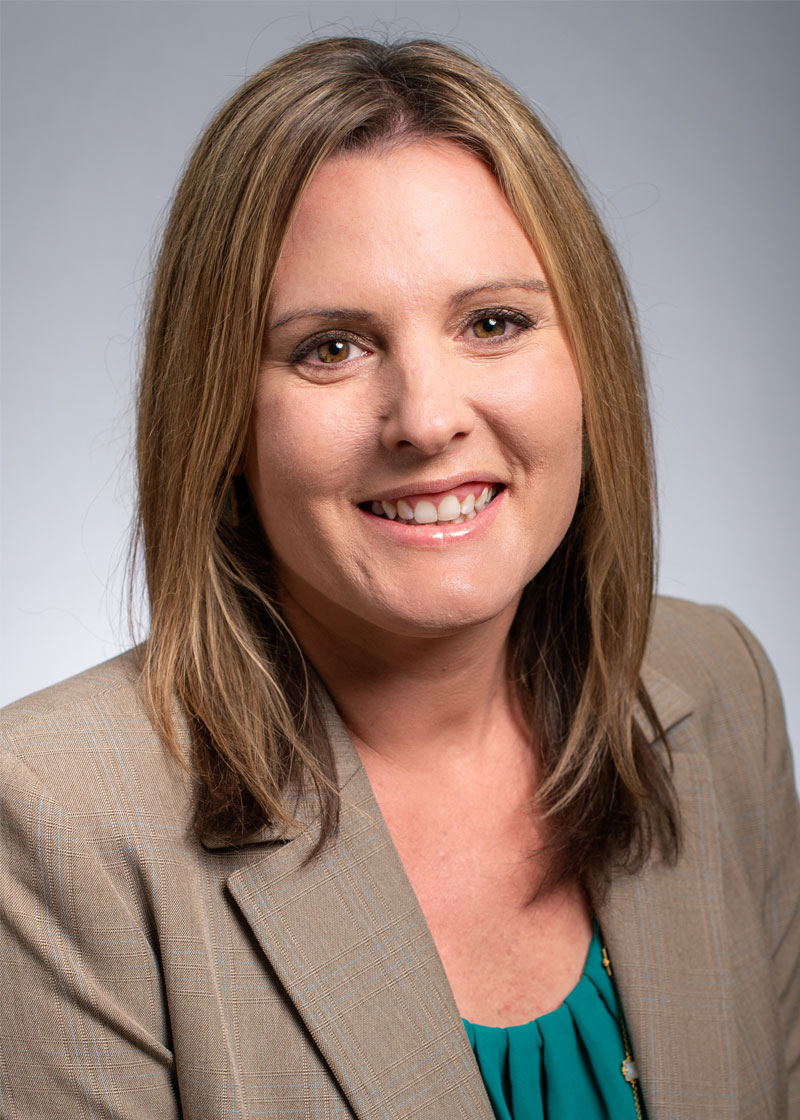 Sarah Tucker, Ph.D., OTR/L
Sarah Tucker, Ph.D., OTR/L
Q: Describe your role within OT and beyond. What does service mean to you?
As a full-time OT faculty, I am so lucky to be able to serve in my teaching and scholarship endeavors. Collaborating with underserved populations through teaching and learning exchange is my idea of service. My students and I have learned from and provided support to underserved populations such as individuals involved in the criminal justice system, those without permanent housing, children and families in the foster care system, and individuals with physical and mental health conditions.
Q: Why are you so passionate about your field?
Teaching allows me to feel like I'm impacting the community on a larger scale than when serving by myself. I believe that the OT profession can meet the needs of populations I am so passionate about, and I love that I can open the minds of our students to think beyond the traditional roles of our profession. When I see the students graduating and creating programs or advocating for underserved populations in their communities, I feel like I have done something to influence that, like I am fulfilling my purpose.
Q: How have you overcome adversity/the biggest barrier you've faced as a woman in your profession?
When I returned to work following my maternity leave, I was experiencing significant postpartum depression. Trying to work in a fast-paced, high-stress, emotional environment (an acute care/inpatient pediatric rehab hospital setting) as a new mother with significant mental health needs was difficult. I felt unsupported and isolated, and it was the first time in my career I realized how inequitable the workplace is based on gender. I leaned on female mentors and friends to advocate for myself and receive support.
Q: What advice would you give the next generation of women in your field?
Young female occupational therapists need to realize their power to advocate and lead both in the workplace and beyond. We have a unique skill set as OTs and deserve a seat at the table when decisions are being made about policy and program development. Seeking out successful female mentors and taking care of our wellbeing is the only way to serve others to our fullest potential.
Eta Berner, EdD, professor in the Department of Health Services Administration, teaches across several HSA programs with a focus on health informatics. She is also the founding director of the Center for Health Informatics for Patient Quality/Safety. After a post-doctoral fellowship in medical education, she worked on student and program evaluations across various health professions. When she came to UAB, she was tasked with applying her evaluation expertise to evaluate computer programs to assist physicians with diagnosis, ultimately leading her to the health informatics field.
Within SHP and UAB, she has served on many department, school, and university level committees but is most passionate about mentoring junior faculty. As chair of the DRC, she works closely with them to support their career trajectories and showcase their achievements. Beyond UAB, she has held mentorship and leadership roles within the American Medical Informatics Association (AMIA), Health Information and Management Systems Society, and the American Educational Research Association. She also served within AMIA's Women in Informatics group by providing support and advice for women in academia.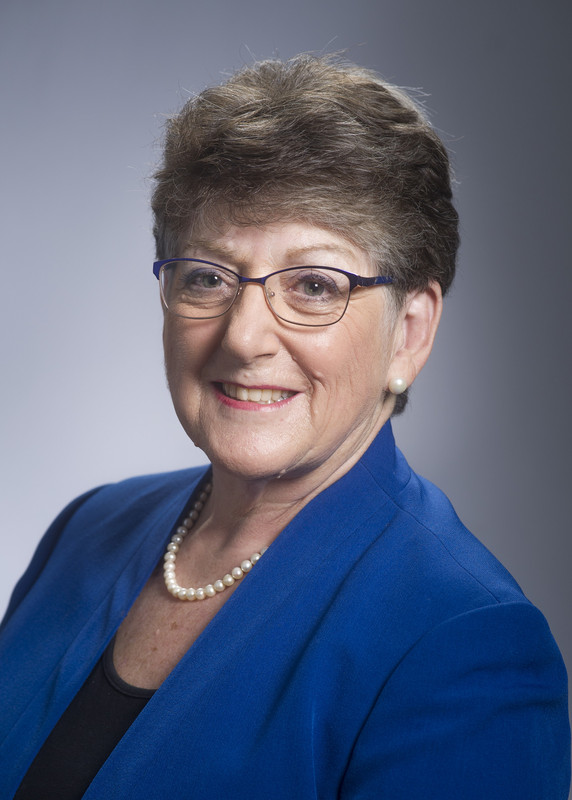 Eta Berner, EdD
Eta Berner, EdD
Q: Who is a woman that has inspired your career?
There have been two throughout different stages of my career. Christine McGuire was my mentor at the University of Illinois when I first started in medical education. Christy Lemak, Ph.D., FACHE, chair of the Department of Health Services Administration, has been a source of significant support as my mentor at UAB.
Q: What advice would you give the next generation of women in your field?
Who you know can get you in the door, but what you know and can do will allow you to flourish. That means taking advantage of opportunities presented to you, utilizing your network of colleagues to help you, and being prepared to do the work you need to succeed.
